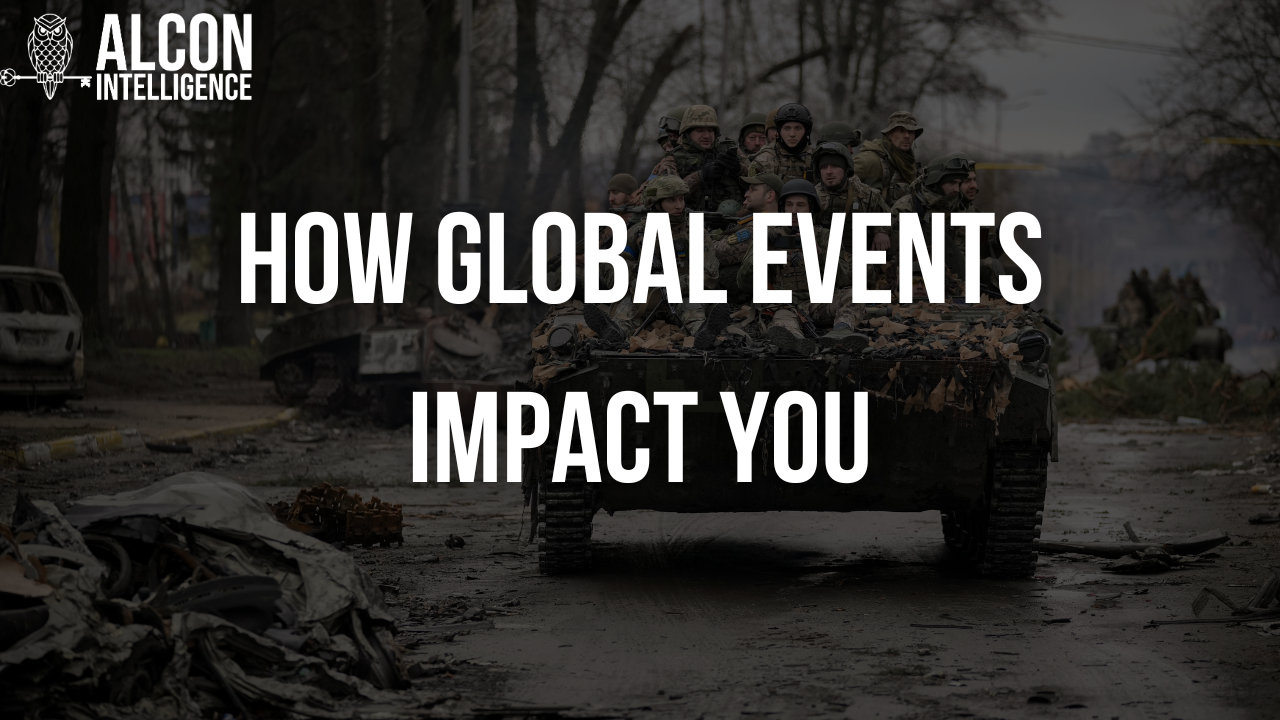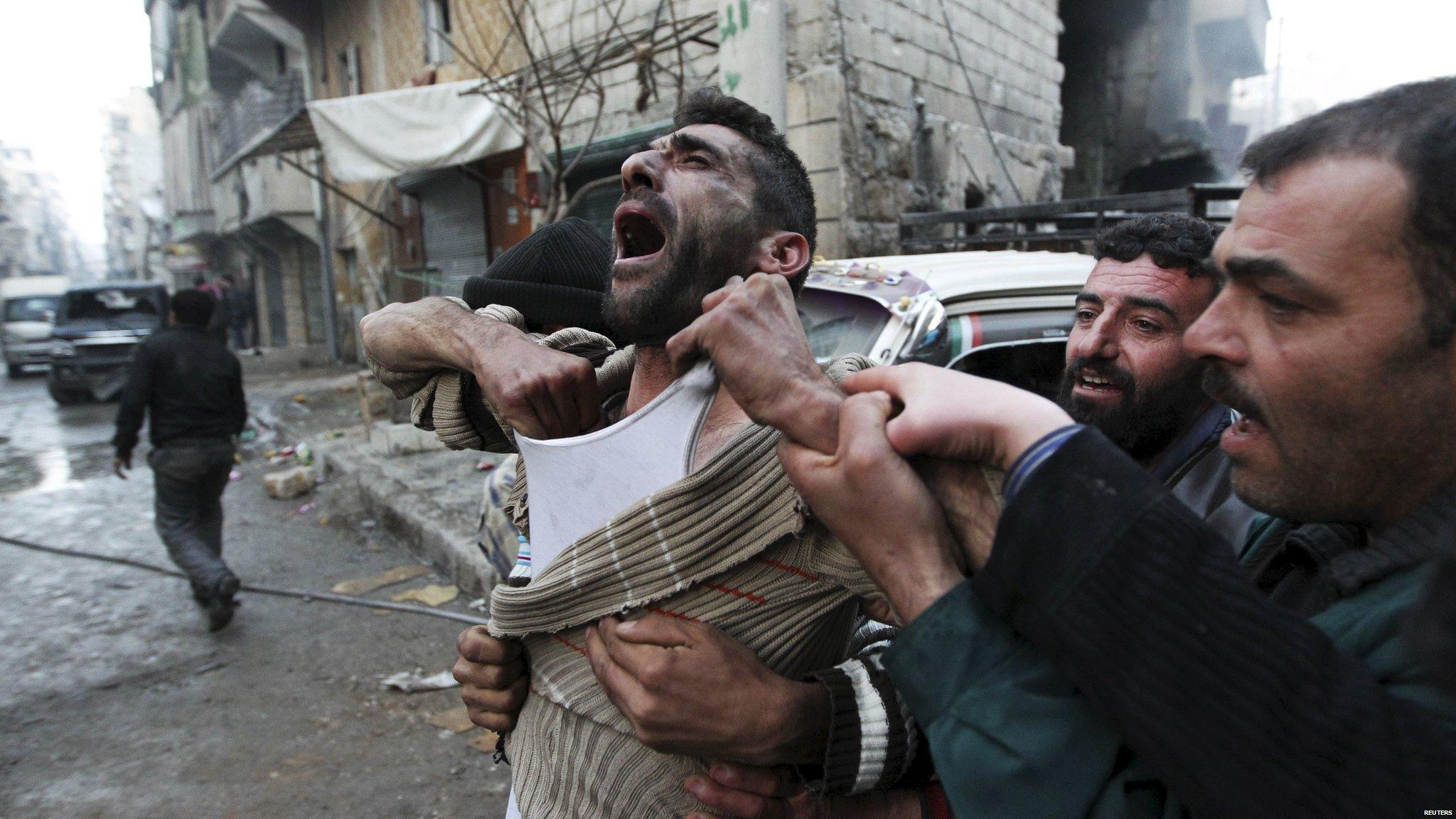
How Global Conflicts Impact Your Daily Life
May 02, 2025Most people think wars and international politics are far-off problems. Something for generals and diplomats to deal with. But global conflict has a way of finding its way into your life whether you’re paying attention or not.
It affects what you pay at the pump and the supermarket. It changes who your neighbours are. It shapes your job market and how much privacy you have. You do not need to live near the frontline to feel the impact.
This is something I’ve seen time and again in my work in intelligence. Strategic decisions made on the global stage often ripple through supply chains, policies, and public sentiment until they hit you directly.
In this post, I want to show you a few real examples of how global events shape local life. These are not abstract. These are things you may already be living with.

The war in Ukraine increased your cost of living
When Russia invaded Ukraine in early 2022, the headlines focused on tanks, missiles, and diplomacy. What was less visible at first was the pressure it put on everyday essentials.
Ukraine and Russia are key suppliers of wheat, oil, gas, and fertiliser. Once war broke out, exports slowed or stopped completely. Sanctions, port closures, and broken supply routes made things worse. That shortage triggered global price hikes.
Wheat prices rose more than 60 percent in some regions. Fuel and gas prices spiked. Fertiliser costs doubled, which then pushed up the cost of producing food elsewhere.
You may not have connected the dots at the time, but if you noticed your groceries and fuel costs rising in 2022 and 2023, this was part of the reason.
War does not stay local. A single invasion can reshape the global economy and land directly on your household budget.

The Syrian war reshaped communities across the world
The civil war in Syria displaced more than 13 million people. Over 6 million fled the country entirely. In 2015, Europe saw more than a million asylum seekers arrive in a single year, most of them escaping violence in Syria.
The response from European countries was varied. Some opened their doors and communities rallied to support the new arrivals. Others tightened immigration policies and became more divided politically.
At the local level, towns adapted quickly. Schools added language classes. Charities expanded food and housing support. Some people took refugee families into their homes. Others pushed back, worried about housing shortages or changes in community identity.
You may have noticed it in your own city or country. A new classmate. A change in local election talking points. A new neighbour with a very different story.
This is how conflict in one country shifts the demographics, policies, and tone of communities across the world.
Terrorism changed how governments watch their own citizens
After the 9/11 attacks, governments across the world brought in sweeping security laws to prevent future attacks. In the United States, the Patriot Act gave intelligence agencies new powers to monitor citizens.
That shift extended globally. More surveillance. More airport security. More data collection. What used to be private became searchable.
Most of us do not notice this day to day. But if you have ever hesitated before posting something online or felt watched in public spaces, that is the effect of those laws.
This was not something local governments voted on. These were strategic decisions made in response to global terrorism. And they changed how we move through the world, how we travel, and how free we feel in public.

Trade wars have made everyday items more expensive
The trade war between the United States and China disrupted supply chains in ways that most consumers did not see coming. Tariffs on each other’s goods meant higher costs across a range of products.
Electronics. Building materials. Appliances. Toys. Even simple household items. Prices crept up or supply dried up.
Then the COVID pandemic hit, and supply chain stress got worse. Add in global political tension, and you have a recipe for delays and price spikes.
The chip shortage was one of the clearest examples. Car makers could not get enough semiconductors, so fewer new cars were made. That pushed up prices for new and used vehicles everywhere.
If you have delayed buying a phone, car, or home appliance recently, chances are global trade friction played a role.
Why this matters to you
We live in a deeply connected world. Conflict in one region does not stay there. It moves through markets, policies, and public opinion. And it lands right in the middle of everyday life.
It shows up in your bills. In your commute. In who your neighbours are. In the laws that affect your privacy.
You do not need to work in intelligence or international affairs to see it. You just need to stay informed. Because once you understand the link between global events and local life, you can make smarter choices.
You can prepare. You can budget differently. You can vote with a clearer sense of what is really driving policy. And you can have a little more empathy for people caught in the middle of it all.
Whether it is refugees, drafted soldiers, or workers affected by foreign policy, these are not abstract concepts. These are people’s real lives. Sometimes even yours.
Global events always become local. The more you understand that, the better equipped you are to respond.
